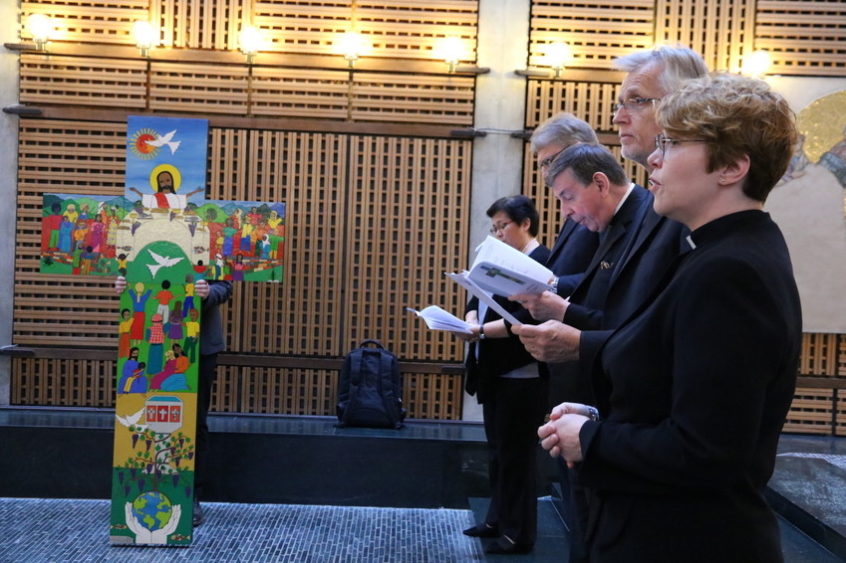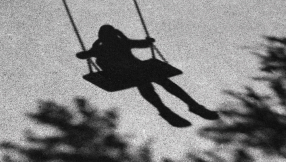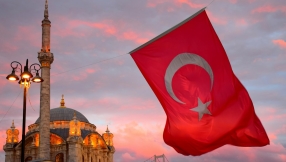A Salvadoran cross from Lund, the Swedish city where Lutherans and Catholics met at the end of 2016 to commemorate the 500th Reformation anniversary, has been placed in the World Council of Churches' (WCC) chapel in Geneva, Switzerland.
The colourful, two-metre high cross from Salvador, which has become known as the Lund Cross, was dedicated on the first day of the global Week of Prayer for Christian Unity.

'On behalf of the World Council of Churches, we receive this cross as a gift of communion,' said the WCC general secretary, Rev Dr Olav Fykse Tveit, at the ceremony.
'May the historical step that it symbolises reminds us that Christ's cross transforms our conflict into communion, and we are reconciled as one creation, joined by the one spirit of God and Creator. Behold the life-giving cross.'
Cardinal Kurt Koch, president of the Pontifical Council for Promoting Christian Unity, gave a sermon in the chapel today about the cross, which is the work of Salvadoran artist Chavarría Ayala, a man who the WCC said 'has lived in the shadow of death squads in his country'.
Koch reminded those in the chapel that the cross was present during the signing of a Lutheran-Catholic Joint Statement signed by Pope Francis and Bishop Munib A Younan, who was the Lutheran World Federation president on that day.
'God's reconciliation with us as human beings, takes place on the cross. Martin Luther rightly placed the message of the cross at the heart of his Reformation and in so doing challenged us to set our eyes on the gravity of the cross,' Kock said.
'When we receive the gift of reconciliation from God, we are also called and obliged to proclaim God's reconciliation and to work for reconciliation, with the authorisation of Jesus Christ himself.'
Ayala said the cross was a gift to him from God. He estimates that he has made more than 130,000 crosses, which have travelled to 109 countries. WCC said that his symbol of Christian unity hangs in the offices of bishops, politicians and former presidents in North America, Europe, the Middle East, Africa, Asia and the Vatican.













